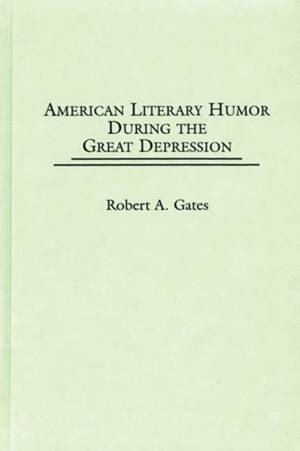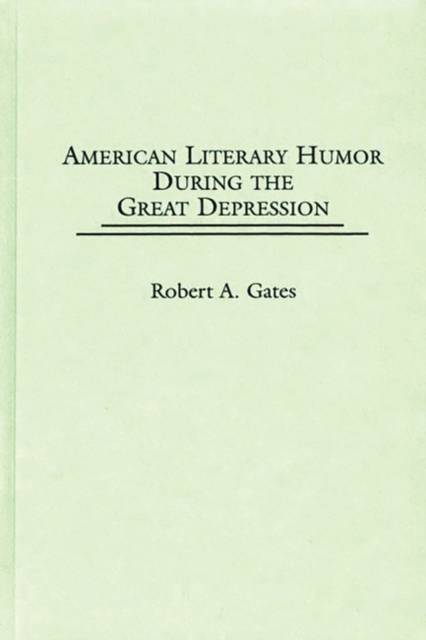
- Afhalen na 1 uur in een winkel met voorraad
- Gratis thuislevering in België vanaf € 30
- Ruim aanbod met 7 miljoen producten
- Afhalen na 1 uur in een winkel met voorraad
- Gratis thuislevering in België vanaf € 30
- Ruim aanbod met 7 miljoen producten
Omschrijving
While volumes have been generated about the Great Depression, relatively little work has been done on the social transformations during the 1930s and few attempts have been made to relate these transformations to American literary humor. The economic troubles of the decade gave rise to one of the richest periods of American humor. This book explores in depth how literary humor evolved during the Depression and how in conjunction with the Depression it helped shape and change the American consciousness. Among the authors studied are Robert Benchley, Zora Neale Hurston, H. L. Mencken, Ogden Nash, James Thurber, Will Rogers, and Damon Runyon, along with the many unknown writers of the WPA who amassed invaluable records of rural folklore during that turbulent time.
The study is spread out over five chapters with each exploring a separate part of our cultural history and its effect on literary humor. The negative psychological aspects of the Depression and how writers used humor to diffuse its effects are treated in the first chapter. The chapters that follow examine the changing roles of husbands and wives within the family, the reinforcement or rejection of traditional ethnic stereotypes in racial humor, the questioning of the validity of the opinions or sentiments of America's professionals, and the role American labor played or was expected to play during the national crisis.Specificaties
Betrokkenen
- Auteur(s):
- Uitgeverij:
Inhoud
- Aantal bladzijden:
- 216
- Taal:
- Engels
- Reeks:
Eigenschappen
- Productcode (EAN):
- 9780313310362
- Verschijningsdatum:
- 30/08/1999
- Uitvoering:
- Hardcover
- Formaat:
- Genaaid
- Afmetingen:
- 161 mm x 243 mm
- Gewicht:
- 521 g

Alleen bij Standaard Boekhandel
Beoordelingen
We publiceren alleen reviews die voldoen aan de voorwaarden voor reviews. Bekijk onze voorwaarden voor reviews.











